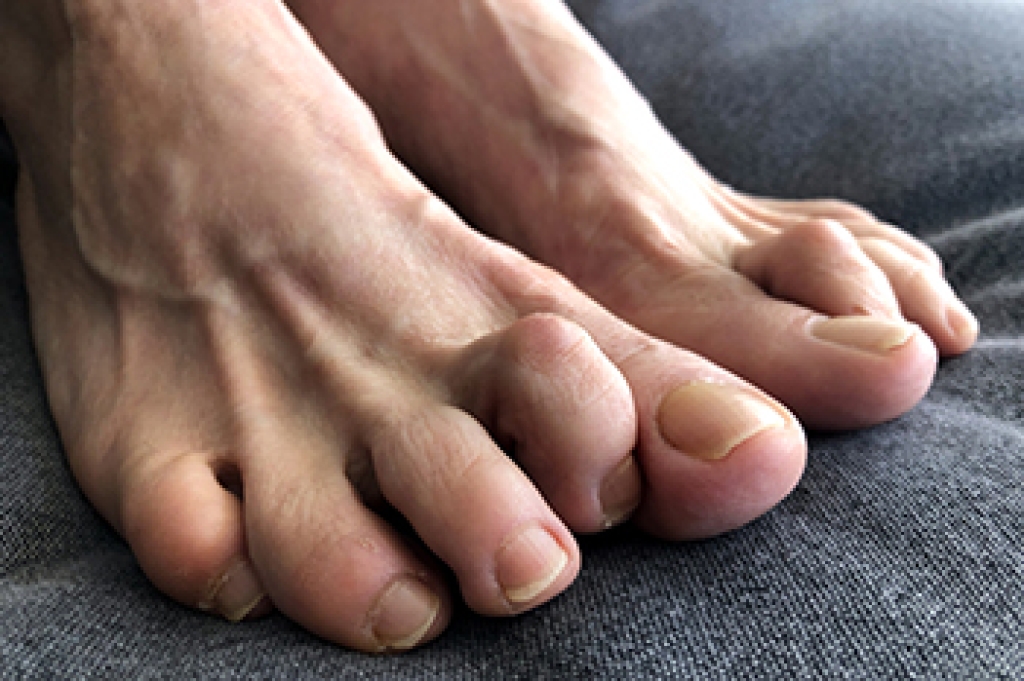
Hammertoe is a condition characterized by an abnormal bending of the toe at the middle joint, resembling a hammer. This deformity often arises due to an imbalance in the muscles and tendons that control the toe's position. Common causes include wearing ill-fitting shoes, particularly those with narrow toe boxes, which can exacerbate the issue. Other contributing factors may involve inherited foot structure, arthritis, or previous injuries to the toes. Certain risk factors can increase the likelihood of developing hammertoe, such as age, as the condition is more prevalent in older adults, and lifestyle choices that include frequent use of high-heeled or tight footwear. Hammertoe can be uncomfortable and unsightly. If you see the beginning signs of hammertoe or have pain from an existing hammertoe, it is suggested that you consult a podiatrist who can help you manage this condition.
Hammertoe
Hammertoes can be a painful condition to live with. For more information, contact Michael Schwartzman, DPM from Illinois and Indiana . Our doctor will answer any of your foot- and ankle-related questions.
Hammertoe is a foot deformity that affects the joints of the second, third, fourth, or fifth toes of your feet. It is a painful foot condition in which these toes curl and arch up, which can often lead to pain when wearing footwear.
Symptoms
- Pain in the affected toes
- Development of corns or calluses due to friction
- Inflammation
- Redness
- Contracture of the toes
Causes
Genetics – People who are genetically predisposed to hammertoe are often more susceptible
Arthritis – Because arthritis affects the joints in your toes, further deformities stemming from arthritis can occur
Trauma – Direct trauma to the toes could potentially lead to hammertoe
Ill-fitting shoes – Undue pressure on the front of the toes from ill-fitting shoes can potentially lead to the development of hammertoe
Treatment
Orthotics – Custom made inserts can be used to help relieve pressure placed on the toes and therefore relieve some of the pain associated with it
Medications – Oral medications such as anti-inflammatories or NSAIDs could be used to treat the pain and inflammation hammertoes causes. Injections of corticosteroids are also sometimes used
Surgery – In more severe cases where the hammertoes have become more rigid, foot surgery is a potential option
If you have any questions, please feel free to contact our offices located in West Chicago, IL and Whiting, IN . We offer the newest diagnostic and treatment technologies for all your foot care needs.
